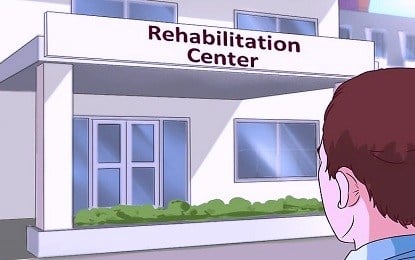Difficulty together with your union? Get counseling. Kiddies working up? Send them for counseling. Have a trip get cancelled? Try some counseling! There seems to be this presumption that any counseling is great counseling? But why would that be? What if we get the phrase counseling and change it out to some other term with exactly the same meaning; do we however sense the same way? For example, by counseling I think many people mean reaching someone else, and getting feedback in the shape of meaning, clarification, or advice. How would you experience the idea that if your kids are acting up, you must send them to a stranger and have the stranger let them have advice?
There’s no lack of bad guidance out there, so how come there an presumption that assistance is OK, so long as some one is calling it counseling? You can say that there’s the assumption that a counselor has received teaching, and therefore the advice will undoubtedly be greater than the arbitrary guidance one usually receives from strangers. But most of us know poor health practitioners, and the requirements becoming a physician are really stringent in comparison to these for counseling!
There’s something about counseling that does assure a certain level of safety– any suggestion to undergo counseling is normally ignored! In all seriousness, the folks who are introduced for counseling in many cases are vulnerable, and so the matter of whether to blindly send them for advice from strangers does deserve some consideration.
There are, of course, different types of counseling. The counseling done by advanced-degree practitioners, such as for instance psychiatrists and psychologists, is generally known as therapy rather than counseling. Therapy could be broken on to various sorts, and some situations are more tuned in to one kind of therapy than another. Treatment is positioned along a continuum from encouraging treatment using one end to oral treatment on the other. Helpful treatment is the correct method for an individual starting trauma or substantial stressors; expressive therapy is the selection for an individual who would like to develop greater insight in to how his/her brain works.
What is supporting vs. expressive therapy? Loyal treatment is targeted at strengthening the individual’s protection systems, as these defenses are what hold people sane during times of stress. Expressive therapy, on another hand, is targeted at pondering assumptions, searching up repressed material, challenging long-held thoughts of relationships, etc. If a person is below a great deal of strain, and then undertakes regular periods of expressive treatment, he will usually get worse, actually to the point of psychosis.
Considering treatment throughout productive dependency in the beginning seems to recommend some contradictions. All through habit the addict is very stressed out, so wouldn’t that suggest that supporting treatment could be best? Absolutely not– when managing habit, I WANT anyone to issue the assumptions and rationalizations that hold the individual using. So does that mean that expressive, psychodynamic psychotherapy will be a good idea? To that particular I’d also claim no. The applying addict is so saturated in BS that psychodynamic therapy is typically a spend of time.
You will find different issues with treatment throughout dependency, even in recovery. A doctor could see addiction in a way that works table to the see of an addictionologist. Psychiatrists usually see addiction as a sign of anything; addictionologists on one other give see addiction as a primary disorder, that may be the explanation for mental signs or illness. To 1, addiction is just a chicken, to another, an egg!
The addictionologist problems that the fan in treatment will start to find factors for what he’s performing, when the causes aren’t the problem; the purpose is always to only stop carrying it out! I understand this picture of two extremes among my patients; equally have a month of sobriety and it’s time and energy to be working regular, and one claims’OK’and starts stuffing out programs without also thinking about the character of the job, and the other rests for weeks referring to how it’feels’to go back to function, thinking why it thinks in this manner, and wondering if he’ll generally experience that way. I just like the addictionologist near me strategy in that placing, like the’like’approach that I’ve stated before. That you do not feel just like functioning? Just behave as you DO feel like functioning, and reach work. You’re feeling exhausted? Behave as if you do not feel tired. To a exhausted, nonworking individual this seems tough; but I’m just attempting to help.
